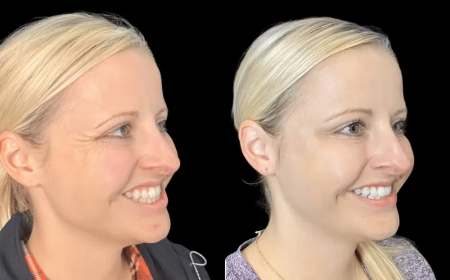A Comprehensive Guide to Researching for Your Assignment
Master the research process with this complete guide to researching for your assignment—practical tips for better sources and stronger writing.

Whether youre writing your first university assignment or knee-deep into your final year dissertation, one thing remains constant: good research is the foundation of great academic work.
Lets be realresearching for an assignment can feel overwhelming. You open your laptop, type a few words into Google Scholar or your university library database, and suddenly youre drowning in hundreds of results. Which ones are relevant? Which ones are credible? And how do you turn all that information into a clear, well-structured argument?
If that sounds familiar, dont worry. Youre not alone, and youre definitely not expected to figure it all out on your own.
This comprehensive guide breaks down the entire research process into simple, actionable steps. Whether youre tackling an essay, report, or literature review, these tips will help you research smarternot harder.
Step 1: Understand Your Assignment Brief
Before you start hunting for sources, take a moment to really understand what your assignment is asking.
Ask yourself:
-
Whats the topic or question?
-
Are there specific themes, theories, or case studies Im expected to explore?
-
What type of assignment is it (analytical, argumentative, comparative)?
-
Whats the required word count?
-
When is it due?
Read the brief more than once. Highlight keywords and underline phrases that give clues about the scope. If anythings unclear, reach out to your tutor or peers early on. Its better to ask now than waste hours researching in the wrong direction.
Step 2: Create a Research Question or Focus Area
Once you understand the assignment, the next step is narrowing your focus. Even if youve been given a set topic, youll still need to define the angle or argument you want to explore.
Heres how:
-
Start broad, then narrow it down. For example:
Broad: Climate change
Narrow: The role of climate change policy in reducing carbon emissions in the UK since 2010
-
Turn it into a question. This makes your research more purposeful.
Example: To what extent have UK climate change policies reduced national carbon emissions since 2010?
Having a clear question will help you decide what to includeand what to leave outas you start gathering material.
Step 3: Know When to Ask for Help
Sometimes youre stuck even after trying all the right steps. Maybe you're confused by a theory, overwhelmed by sources, or just cant tell if your argument makes sense.
Thats completely normal.
Talk to your tutor, librarian, or academic support services at your university. Or connect with peersstudy groups can help clarify tricky topics.
And if youre on a tight deadline or need expert guidance, its okay to explore professional University assignment help. Just make sure its ethical, reliable, and supports your learningnot replaces it.
Step 4: Use the Right Tools to Find Credible Sources
When youre ready to dig deeper, use academic databases and library search engines. The quality of your sources can make or break your assignmentso skip the clickbait and focus on scholarly, peer-reviewed material.
Here are some top tools:
-
Google Scholar: Great for quick searches across disciplines
-
JSTOR: Especially useful for humanities and social sciences
-
ScienceDirect: Ideal for science and technical subjects
-
EBSCOhost or ProQuest: Your university may have access
-
Your universitys library portal: Use it! Its gold.
When searching, use keywords and Boolean operators (like AND, OR, NOT) to narrow results.
Example:
-
climate change AND UK policy AND carbon emissions
Once youve found a promising article or paper, look at its reference list to discover even more useful sources.
Step 5: Evaluate Your Sources Critically
Just because something sounds smart doesnt mean its right for your assignment.
Ask yourself:
-
Who wrote it? Is the author a scholar or expert?
-
When was it published? Is it still relevant?
-
Is it peer-reviewed?
-
Does it present clear evidence and reasoning?
-
Is it biased or balanced?
Use the CRAAP test (Currency, Relevance, Authority, Accuracy, Purpose) to quickly assess any source.
Also, don't overload your essay with too many references. Quality always beats quantity.
Step 6: Take Smart Notes While You Read
Reading without taking notes is like shopping without a list. Youll lose track of what youve seen and spend more time going back and forth.
Heres how to make your notes effective:
-
Summarize key points in your own words
-
Highlight useful quotes (and include the page number!)
-
Jot down how the info might relate to your argument
-
Use bullet points, not full paragraphs
Some students prefer using digital tools like Notion, Evernote, or Zotero to organise notes and sources. Others stick with colour-coded notebooks or index cards. Find what works for you.
And remember: good note-taking now makes writing later so much easier.
Step 7: Organise Your Research Before Writing
Now that youve collected sources and notes, dont just jump into writing. Take a moment to organise everything.
Try this approach:
-
Group similar ideas or themes together
-
Match evidence to specific sections of your argument
-
Create a rough structure or outline
For example:
-
Introduction: Define terms, explain relevance
-
Section 1: Present background info or theory
-
Section 2: Discuss main arguments
-
Section 3: Address counterarguments or different perspectives
-
Conclusion: Sum up and connect back to your research question
Having this framework gives you a roadmap so youre not staring at a blank screen, wondering where to start.
Step 8: Use the Right Referencing Style
Academic writing is all about giving credit where it's due. Your university will expect you to use a particular referencing stylelike Harvard, APA, MLA, or Chicago.
Get to know the rules of your required style:
-
How to cite books, articles, and websites
-
In-text citation formats
-
How to build a bibliography or reference list
If youre unsure, your university probably has a referencing guide. Tools like CiteThisForMe, Zotero, or EndNote can also help automate the processbut always double-check the output for accuracy.
Getting this right isnt just about avoiding plagiarismit also shows that youve done solid, credible research.
Step 9: Do Some Background Reading
Now that youve got a direction, do some initial reading to get familiar with your topic. This isnt about finding quotes yetits about understanding the landscape.
Start with:
-
Lecture notes or textbooks for definitions and context
-
Wikipedia for a broad overview (but never cite it)
-
Introductory books or academic blogs
Take brief notes, jot down important terms, and note any major debates or scholars mentioned. This step helps you get your bearings and decide which areas need deeper research.
Step 10: Stay Organised and Avoid Last-Minute Panic
The biggest enemy of quality research? Procrastination.
Start earlyeven if its just 30 minutes a day. Break your research into small goals: find one source, write one paragraph, revise one section.
Use a planner or calendar to track deadlines. Set reminders for key milestones: research complete, first draft, revisions, final proofreading.
And yestake breaks. Burnout kills creativity and focus. Step away from your laptop, go for a walk, drink some water. Your brain works better when its not running on empty.
Conclusion: Research Is a SkillNot a Superpower
Lets wrap this up with a bit of honesty: research takes practice. Its not about being the smartest person in the roomits about knowing how to find, filter, and apply information in a meaningful way.
By understanding your brief, asking good questions, using the right tools, and staying organised, you can transform your research process from chaotic to confident.
The more you do it, the better you get. So take it one step at a timeand remember, every expert researcher once started right where you are now.
About the Author
Jasmine Adams is a former university lecturer turned full-time education writer and student mentor. With a background in academic research and over 12 years of experience in higher education, she now helps students succeed through practical study strategies and honest academic advice. When shes not writing, Jasmine can be found exploring second-hand bookshops, sipping green tea, or hiking the coastlines of Wales.






































